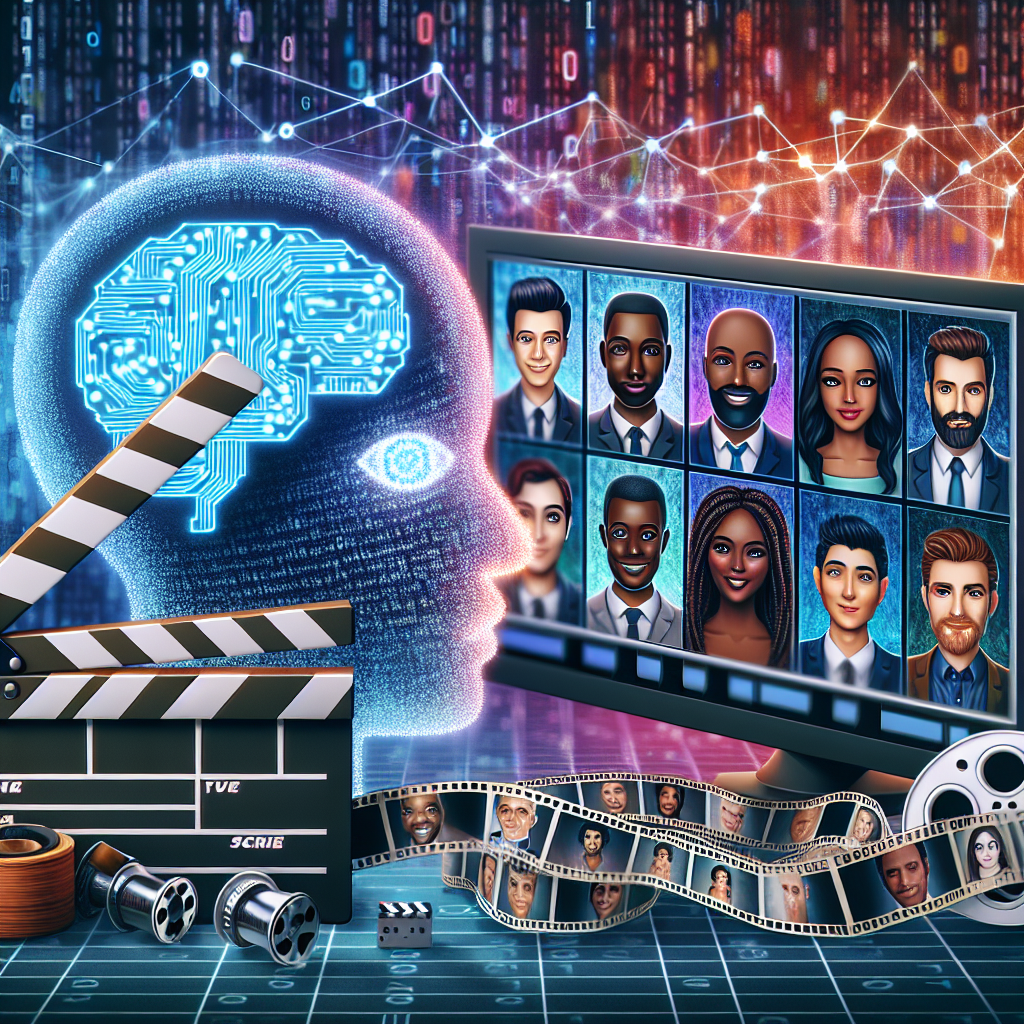The Role of AI in Film and TV Casting Decisions
Artificial intelligence (AI) has been revolutionizing various industries, and the entertainment industry is no exception. In recent years, AI has started to play a significant role in film and TV casting decisions, helping casting directors and producers make more informed choices when selecting actors for roles. This technology has the ability to analyze vast amounts of data and provide insights that can help streamline the casting process and improve the overall quality of productions.
One of the main ways AI is being used in casting decisions is through the analysis of actor performances. AI algorithms can analyze an actor’s previous work, including their past roles, performances, and even social media presence, to determine if they are a good fit for a particular role. This analysis can help casting directors identify actors who have the right skills, experience, and characteristics needed for a specific role, ultimately leading to better casting decisions.
AI can also help casting directors identify emerging talent. By analyzing data from social media platforms, online streaming services, and other sources, AI algorithms can identify actors who are generating buzz and attracting attention from audiences. This can help casting directors discover new talent and give them opportunities to audition for roles they may not have considered otherwise.
In addition to analyzing actor performances, AI can also help casting directors identify trends and patterns in casting decisions. By analyzing data from past productions, AI algorithms can identify common characteristics or traits that successful actors share, helping casting directors make more strategic casting decisions. This can be particularly useful for casting directors who are looking to cast diverse actors or actors with specific qualities for a role.
Furthermore, AI can help casting directors save time and resources by automating certain aspects of the casting process. For example, AI algorithms can help match actors to roles based on specific criteria, such as age, gender, ethnicity, and skills. This can help casting directors quickly identify potential candidates for a role and streamline the audition process. AI can also help casting directors manage the logistics of auditions, such as scheduling and coordinating callbacks, making the casting process more efficient and cost-effective.
Despite the benefits of using AI in casting decisions, there are also some challenges and limitations to consider. One of the main limitations of AI is its reliance on data. AI algorithms can only analyze the data that is available to them, so if there is limited data on a particular actor or if the data is biased in some way, the AI algorithm may not be able to make accurate predictions or recommendations. Additionally, AI algorithms are only as good as the data they are trained on, so if the data is incomplete or inaccurate, the AI algorithm may produce flawed results.
Another challenge of using AI in casting decisions is the potential for bias. AI algorithms can inadvertently perpetuate bias if they are trained on biased data or if they are not properly calibrated. For example, if an AI algorithm is trained on data that is predominantly male or white, it may unintentionally prioritize male or white actors in casting decisions, perpetuating existing biases in the industry. To mitigate this risk, casting directors and producers must be mindful of the limitations of AI and take steps to ensure that the technology is used ethically and responsibly.
Despite these challenges, the use of AI in film and TV casting decisions is likely to continue to grow in the coming years. As the technology becomes more sophisticated and data sources become more diverse, AI algorithms will be able to provide even more valuable insights and recommendations to casting directors and producers. By leveraging the power of AI, the entertainment industry can make more informed casting decisions, discover new talent, and create more diverse and inclusive productions.
FAQs
1. How does AI analyze actor performances?
AI algorithms analyze actor performances by examining a variety of data sources, including an actor’s past roles, performances, social media presence, and audience engagement. By analyzing this data, AI algorithms can identify patterns, trends, and characteristics that can help casting directors make more informed casting decisions.
2. How does AI help identify emerging talent?
AI algorithms can identify emerging talent by analyzing data from social media platforms, online streaming services, and other sources to identify actors who are generating buzz and attracting attention from audiences. This can help casting directors discover new talent and give them opportunities to audition for roles they may not have considered otherwise.
3. What are the limitations of using AI in casting decisions?
One of the main limitations of using AI in casting decisions is its reliance on data. AI algorithms can only analyze the data that is available to them, so if there is limited data on a particular actor or if the data is biased in some way, the AI algorithm may not be able to make accurate predictions or recommendations. Additionally, AI algorithms can inadvertently perpetuate bias if they are not properly calibrated or if they are trained on biased data.
4. How can casting directors mitigate bias in AI algorithms?
To mitigate bias in AI algorithms, casting directors and producers must be mindful of the limitations of AI and take steps to ensure that the technology is used ethically and responsibly. This may include diversifying data sources, calibrating AI algorithms to reduce bias, and implementing checks and balances to ensure that casting decisions are fair and inclusive.
5. How can AI help streamline the casting process?
AI can help streamline the casting process by automating certain aspects of the process, such as matching actors to roles based on specific criteria, managing audition logistics, and identifying trends and patterns in casting decisions. By leveraging the power of AI, casting directors can save time and resources, make more informed casting decisions, and create more diverse and inclusive productions.

